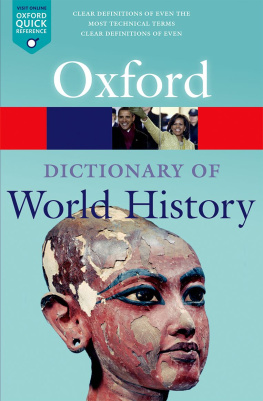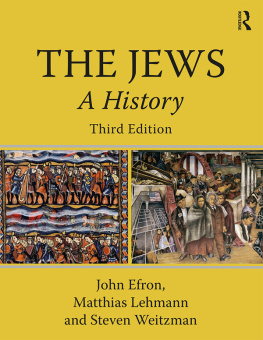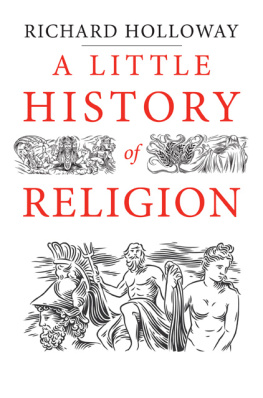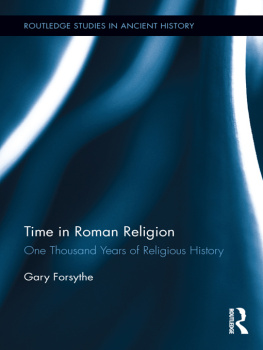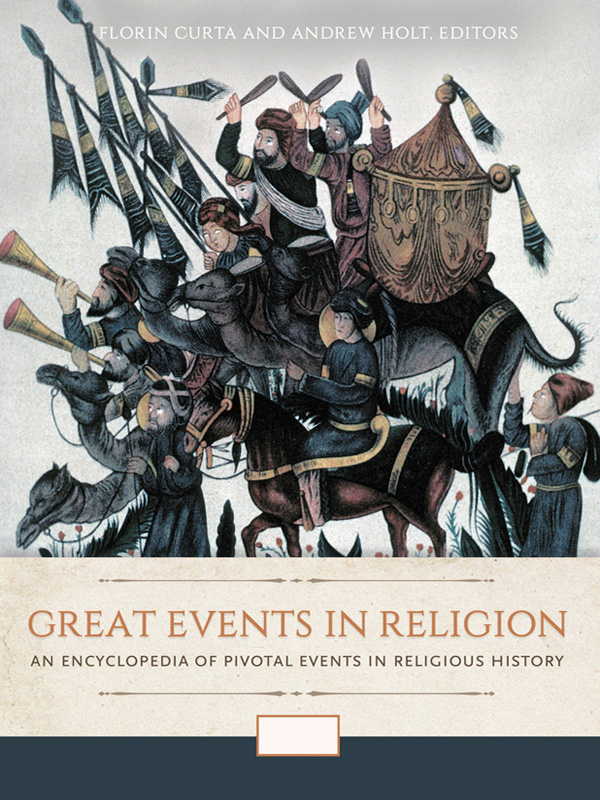Great Events in Religion
Copyright 2017 by ABC-CLIO, LLC
All rights reserved. No part of this publication may be reproduced, stored in a retrieval system, or transmitted, in any form or by any means, electronic, mechanical, photocopying, recording, or otherwise, except for the inclusion of brief quotations in a review, without prior permission in writing from the publisher.
Library of Congress Cataloging-in-Publication Data
Names: Curta, Florin, editor.
Title: Great events in religion : an encyclopedia of pivotal events in religious history / Florin Curta and Andrew Holt, editors.
Description: Santa Barbara : ABC-CLIO, LLC, 2017 | Includes bibliographical references and index. Contents: Volume 1. Prehistory to AD 600 Volume 2. AD 600 to 1450Volume 3. 1450 to the Present.
Identifiers: LCCN 2016040890| ISBN 9781610695657 (set) | ISBN 9781440845987 (volume 1 : alk. paper) | ISBN 9781440845994 (volume 2 : alk. paper) | ISBN 9781440846007 (volume 3 : alk. paper)
Subjects: LCSH: HistoryReligious aspectsEncyclopedias. | ReligionHistoryEncyclopedias.
Classification: LCC BL65.H5 G74 2017 | DDC 201/.69dc23
LC record available at https://lccn.loc.gov/2016040890
ISBN: 978-1-61069-565-7 (set)
ISBN: 978-1-4408-4598-7 (Volume 1)
ISBN: 978-1-4408-4599-4 (Volume 2)
ISBN: 978-1-4408-4600-7 (Volume 3)
EISBN: 978-1-61069-566-4
212019181712345
This book is also available as an eBook.
ABC-CLIO
An Imprint of ABC-CLIO, LLC
ABC-CLIO, LLC
130 Cremona Drive, P.O. Box 1911
Santa Barbara, California 93116-1911
www.abc-clio.com
This book is printed on acid-free paper 
Manufactured in the United States of America
Contents
Volume 1: Prehistory to AD 600
Volume 1: Prehistory to AD 600
Burial and Afterlife
Christianity
Judaism
Mission and Conversion to Christianity
Monasticism
Political Use of Religion
Religion in Ancient China
Religion in Ancient Egypt
Religion in Ancient Greece
Religion in Ancient India
Religion in Ancient Persia
Religious Leaders
Religious Literature
Rites and Rituals
Roman Religion
Temples, Sanctuaries, and Cult Sites
Religion has been a fundamental factor in the history of humanity from the very beginning. We have divided the book into three parts, with each one tracing the influence of pivotal events in a particular period in history, from prehistory to the modern age. Although there is much emphasis on developments in the West, the editors have done their best to incorporate key events in religious history from the non-Western parts of the world in an effort to introduce them to an English-speaking audience.
This is definitely not a book meant to be read cover to cover but one to be consulted and browsed according to the readers interests. What follows is, in fact, a guide that offers readers ready accessibility to the key events in the history of religion. Within each volume, we have arranged entries in chronological orderalong with sidebars for a few of them to enrich the knowledge of specific topics. In addition to a wide array of topical articles, several special features will help guide readers to knowledge that they can use. At the beginning of each volume are two lists of entries: one alphabetical and the other topical. The former gives a quick overview of the topics covered in each book, and the other helps the readers concentrate on specific aspects and on related subjects.
In addition, an introduction to each volume is provided as an overview of the main developments in the period covered in that particular volume. Long entries, approximately 3,000 words in length, represent the most important and well-developed topics in the field, for which there is extensive and general research and theory. Medium-length entries, approximately 1,500 words in length, discuss subjects that have attained significance in the field as core topics. Short entries of about 750 words for the most part describe topics that are either more limited chronologically or less central to the understanding of broader developments in the history of religion. For those who would like more in-depth treatments, the Further Reading sections following each entry provide a basic list of highly regarded books or articles on each specific topic. In compiling the selected references, the editors have tried to include secondary sources that are not easy to identify. At the same time, they have largely excluded standard reference works and included a very limited number of primary sources. Citations within the text have been kept to a minimum to enhance readability. Nearly all articles are cross-referenced in order to help the reader gain a broader understanding of both the historical context and the cultural connections. For consistency, unless otherwise noted, all biblical text is taken from the New International Version translation of the Bible.
Although selecting the topics for these volumes and soliciting authors were rather monumental tasks, editing the entries themselves was not that difficult. The scholarship that was submitted for the encyclopedia was, almost without exception, thorough, insightful, and well written. The editors wish to make clear how grateful they are to have had the opportunity to work on such a fascinating and wide-ranging project. The idea of editing an encyclopedia that considers hundreds of pivotal events in religious history from prehistoric times until the present, not bound by any geographic regions, was a daunting task. Yet it has proven to be a very rewarding one.
For this, we have been dependent on the scholarly expertise of more than 100 contributors from varying disciplines (e.g., history, religion, anthropology, literature, and theology) from around the world. They include leading scholars in their fields as well as talented graduate students immersed in the most up-to-date scholarship. Working with all of them has been both a pleasure and a learning experience. We set out to edit a reference work for students in religion and history, and we ended up becoming students again ourselves.
In the early 21st century, religion plays a much greater role than scholars working in the second half of the 20th century had predicted. There is now, more than ever, a real need for a standard reference work covering the pivotal events in the history of religion across the world. Great Events in Religion is a most-up-to-date and comprehensive collection of essays on a wide variety of topics. The essays will be of interest not only to students of history and religion, but also to those with an interest in anthropology, area studies, or archaeology. Indeed, given the enormous range of topics covered, from the use of oracle bones in ancient China to the abolition of the untouchables class in modern India, no one interested in religion and the relation between humans and the divine can fail to find something of interest in each volume. The format of the volumes lends itself just as readily to casual perusal as it does to serious inquiry.
That the time of encyclopedias is over has often been repeated lately, even in academic circles. If in need of encyclopedic information, the argument goes, one can rely on Wikipedia and on the search results of Google or Yahoo, for one can look up almost everything on the Internet nowadays. Many scholars, including the editors of this encyclopedia, do indeed use such tools many times a day, for example, for the meaning of a new term, the biography of an important figure, or even the basics of some unfamiliar theory. On the other hand, however, the probability for extended controversy, especially related to religion, rises precipitously with increased Web traffic and the use of social media. On YouTube, for example, sins are confessed or acted out in perpetuity, and Facebook has become an arena for doctrinal debates and tournaments of meme-based disputations. Some of those controversies may seem at first glance new, arising because of advances in technology or sciences. In others, at stake is often a poor knowledge of the history of a particular religious issue, especially of pivotal events. When it comes to topics that are crucial or even risky, therefore, one must address the question of which source is more reliable: An open source encyclopedia such as Wikipedia that can be edited by anyone? Or an encyclopedia such as this, with essays written by trained scholars, some of whom are the leading voices in their fields, under academic oversight? We think the answer is clear.

![Florin Curta (editor) Great Events in Religion [3 volumes]: An Encyclopedia of Pivotal Events in Religious History](/uploads/posts/book/295713/thumbs/florin-curta-editor-great-events-in-religion-3.jpg)
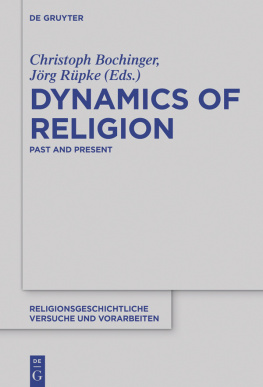


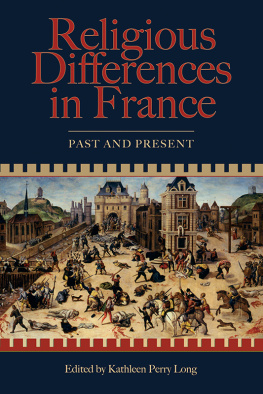
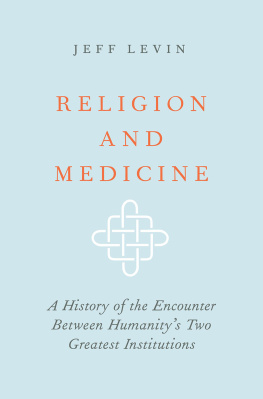
![James Francis LePree Ph.D. (editor) - The Byzantine Empire [2 volumes]: A Historical Encyclopedia](/uploads/posts/book/296844/thumbs/james-francis-lepree-ph-d-editor-the-byzantine.jpg)
